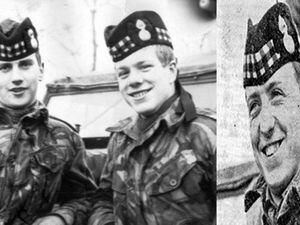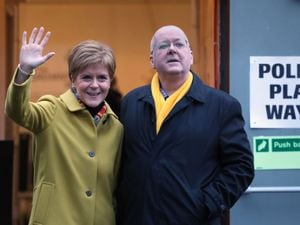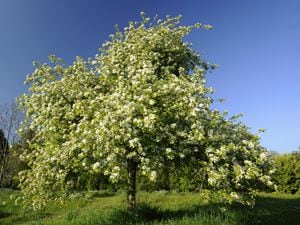Ex-paratrooper befriended Scottish soldiers before luring them to deaths
A new BBC Northern Ireland programme also reported Paddy O’Kane, now deceased, received a comfort letter assuring him he was not wanted by police.

A former paratrooper befriended three Scottish soldiers before luring them to their deaths in the early years of Northern Ireland’s Troubles, it has been reported.
John McCaig, 17, his brother, Joseph 18, and Dougald McCaughey, 23, were found shot dead in Ligoniel, north Belfast, on March 10 1971.
The young men, of the Royal Highland Fusiliers, were last seen drinking in a pub in Belfast city centre.
A new BBC Northern Ireland Spotlight programme has reported that Paddy O’Kane, a former member of the Parachute Regiment from north Belfast, had been involved in the killings.
The bodies of the soldiers were found by a teenage girl on a remote roadside close to Ligoniel in the north of the city.
In a previous interview, Brenda Kielty described how she heard shots being fired before finding the bodies.
“The wee boy had loads of freckles on his face, I remember that, there was blood still running through the wee boys eyes, I actually put my hand on the wee boy’s face and he was warm,” she said.
“They were just shot and dumped on top of each other.”
No one has ever been convicted of the killings.
The incident sparked outrage in both Northern Ireland and Scotland and led to a new rule against soldiers younger than 18 being deployed to the region.
Spotlight, broadcast on Tuesday night, associated four republicans with the killings.
Patrick McAdorey and Harry Canavan are now deceased.
Anthony Dutch Doherty has “vehemently” denied being involved in the killings.
The programme reported he was arrested in 1971, questioned by detectives from the Metropolitan Police and made a confession.
But a judge later found the process of interrogation at the time meant admissions could not be regarded as voluntary.
A statement issued to the BBC by his solicitor said: “Our client Anthony Dutch Doherty vehemently denies any involvement in the murders mentioned in your correspondence and takes grave exception to your communication”.

Spotlight reporter Darragh MacIntyre spoke to Dave Hoare who reviewed the original police investigation for the Historical Enquiries Team (HET) in 2010.
Mr Hoare dismissed previous reports that the soldiers had been lured to their death by women in a “honeytrap”.
“There was no evidence whatsoever that they were in the company of women, to my mind it’s an urban myth until someone can bring up some fresh evidence,” he told the programme.
Instead the young soldiers are reported to have been befriended by O’Kane in a pub before agreeing to leave with him and others.
O’Kane from north Belfast was reported as having served seven years in the Parachute Regiment from 1957 to 1964.

The programme traced his last address to Shannon, Co Clare and established he had died in 2009.
His sons are reported as confirming to Spotlight that their father had been involved in the killings.
O’Kane’s sons also told the programme that their father received a so-called comfort letter in 2007 which told him that he was, at that point, not wanted by the authorities.
Former IRA man Des Long said he knew of O’Kane within the grouping.
“I know him by reputation for I know for certain he was a British commander and he fought in Cyprus and he was involved in the training of people in RPGs (rocket propelled grenades),” he told Spotlight.
“He was a first class trainer but I don’t think he was particularly liked by some of his comrades, don’t ask me why I think that, I believe he was an out and out soldier, maybe that didn’t suit the politicians.”
The Justice 371 campaign is calling for fresh inquests into the killings of the three soldiers.




